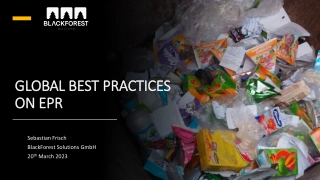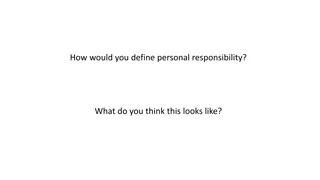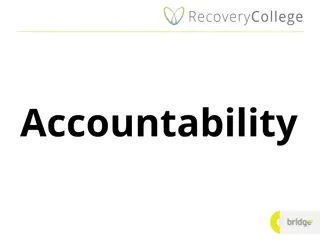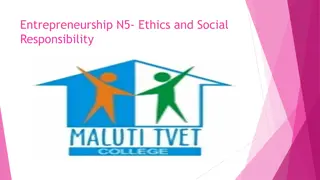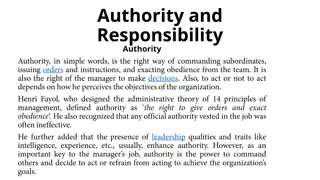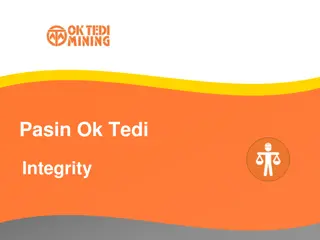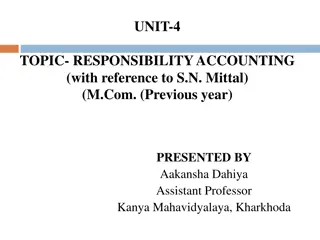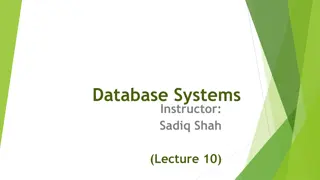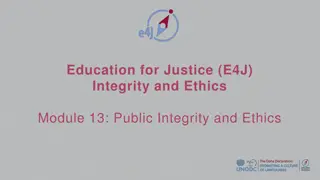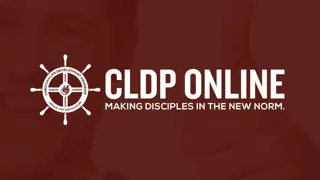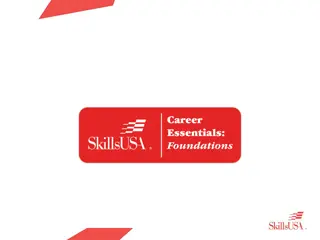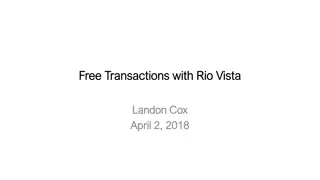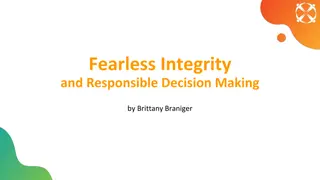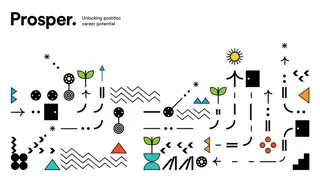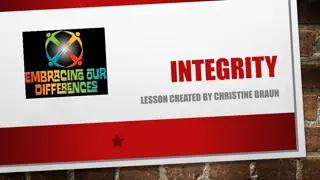Embracing Personal Responsibility: Integrity in Action
Understanding and embodying personal responsibility is crucial for success in various aspects of life. This involves accepting accountability without making excuses, demonstrating integrity in all endeavors, and recognizing how responsibility shapes workplace dynamics. By defining, differentiating, and exemplifying responsibility, individuals can cultivate a strong work ethic and contribute positively to their personal and professional environments.
Download Presentation

Please find below an Image/Link to download the presentation.
The content on the website is provided AS IS for your information and personal use only. It may not be sold, licensed, or shared on other websites without obtaining consent from the author. Download presentation by click this link. If you encounter any issues during the download, it is possible that the publisher has removed the file from their server.
E N D
Presentation Transcript
Accepts Responsibility Personal Skills: Integrity Essential Questions What does personal responsibility mean? What is the relationship between responsibility and excuses? How can I be personally responsible at school, home and in the workplace?
Accepts Responsibility Personal Skills: Integrity Students will understand Accepting personal responsibility applies to all areas of life. Being responsible means not making excuses. Demonstrating personal responsibility at work is a key to success in a job (current) and career (future).
Accepts Responsibility Personal Skills: Integrity Students will know Characteristics of responsibility How personal responsibility affects the workplace
Accepts Responsibility Personal Skills: Integrity Students will be able to Define personal responsibility. Understand the difference between responsibility and making excuses. Demonstrate how to have personal responsibility in the workplace.
Personal Skills: Integrity What do you think of when you hear the word responsibility? Identify a person who you feel is responsible. What traits or experiences come to mind that make you see him or her as responsible?
Personal Skills: Integrity Objectives: Define personal responsibility. Understand the difference between responsibility and making excuses. Demonstrate how to have personal responsibility in the workplace.
Personal Skills: Integrity Personal Belonging to or intended for a particular person and no- one else. Responsibility The state or fact of being responsible, answerable, or accountable for something within one's power, control, or management. Personal Responsibility MY state or fact of being responsible, answerable or accountable for something within MY power, control or management.
Personal Skills: Integrity Why do we give or make excuses?
Personal Skills: Integrity Excuse: It broke. Taking Responsibility: I broke it. How can I fix it? Excuse: I can t find it. Taking Responsibility: I haven t found it yet. I need to look harder. Excuse: She was doing it, so I did it too. Taking Responsibility: I won t do it.
Personal Skills: Integrity Identify three reasons it is important to have personal responsibility at work? What are some examples or scenarios that describe being personally responsible at work? What impact does employee personal responsibility have on the company or business? What happens if employees do not show personal responsibility in their jobs?
Personal Skills: Integrity What connection exists between this content and what was learned or discussed previously? What questions do you have about this information? What is your opinion about how this information relates to your life? What is one fact that really struck you? What is something that contradicts what you previously thought about the subject?


